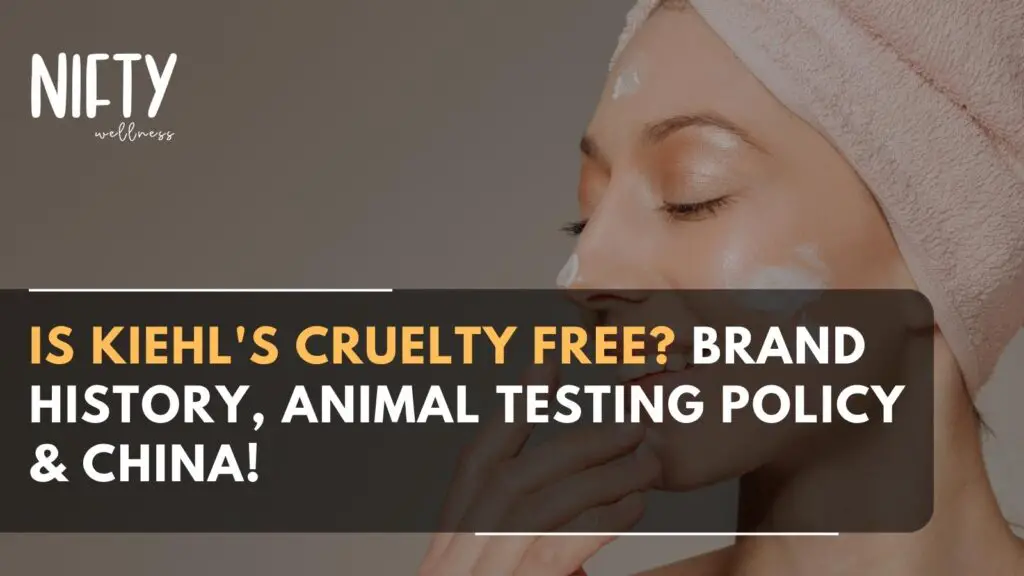In the bustling heart of New York City, where streets meet and stories abound, a small apothecary store began its journey. This little shop would later become a well-known name in the skincare and beauty industry. Want to know what we are talking about? We just introduced you to Kiehl’s origin story!
With the advent of ethical beauty & clean beauty, consumers are now more conscious of their beauty choices. The terms “cruelty-free” and “vegan” have gained significant prominence. If you are wondering why we’ve jumped off from Kiehl’s to discuss ethical beauty, it is because there is a connection. Kiehl’s has often been under scrutiny in terms of being an ethical and clean beauty brand. This blog will help you find answers to “Is Kiehl’s Cruelty Free and Vegan?” and “Does Kiehl’s test on animals?”
Read on to uncover the truth about Kiehl’s animal testing practices and Kiehl’s cruelty-free status.
The past, present & future of Kiehl’s

If you want to know what is Kiehl’s? And how did it come into existence? You’re at the right place. Here is a timeline of Kiehl’s origin: An honoured past, thriving present, and ever-growing future.
Humble Beginnings (1851-1900s)
Back in 1851, a small herbal store sprang to life at the corner of 13th Street and Third Avenue in New York City, where the story of Kiehl’s began. As time passed, pharmacist John Kiehl took the reins, turning the shop into “Kiehl Pharmacy.”
Later, with the guidance of Mr. Irving Morse, John Kiehl’s apprentice, the pharmacy evolved, giving birth to the first-ever Kiehl brand products, including the iconic Original Musk Oil. Their “Try Before You Buy” and dedication to ingredient transparency made them a folk’s favourite.
A Level Up (1921-1950s)
The mid-20th century brought some significant changes to Kiehl’s. The brand kept pushing for ingredient transparency, even before the U.S. government made it a rule. Aaron Morse, a skilled chemist who developed an early penicillin version, significantly upgraded Kiehl’s.
He introduced Mr. Bones, a life-size teaching skeleton, to help customers better understand their health conditions and ailments. During this era, iconic products like Calendula Herbal-Extract Toner and Kiehl’s Lip Balm #1 also debuted.
A Place in History (1950s-1970s)
It was during the 1950s to 1970s when Kiehl’s carved out its place in history. More than 103 Kiehl’s products and artifacts found their forever home in the Division of Medicine and Science collection at the Smithsonian National Museum in Washington, D.C. Kiehl’s also dipped its toes into the world of adventure, sponsoring the Everest ’88 Expedition. The Morse legacy continued with Jami Morse Heidegger and Klaus Heidegger taking the helm.
Skincare Innovations & Beyonds (2000s-Present)
Fast forward to the 21st century, and Kiehl’s was still at the forefront of skincare innovation. The brand rolled out Dermatologist Solutions™, a collection of advanced skincare dreamed up by Kiehl’s chemists in cahoots with leading dermatologists. It has even started a Kiehl’s skin test through which it offers personalized skincare.
Another notable moment is the beginning of ‘Kiehl’s Gives,’ in 2012, which came to life to mark 160 years of community service and to educate customers about global charitable initiatives. Since 2015, Kiehl’s has contributed more than $18.6 million to multiple noble causes like supporting the LGTBQ+, children’s wellbeing, and the environment.
All through these years, Kiehl’s kept its promise of nature-inspired, scientifically-proven formulas and personalized consultations, helping folks achieve healthier-looking skin.
Curious about Kiehl’s vs Clinique? Check out our blog Kiehls VS Clinique: Differences, Similarities & Which One Is Right For You. Look no further! We delve into the differences and help you make an informed choice for your skincare routine.
Understanding Cruelty-Free and Vegan Beauty
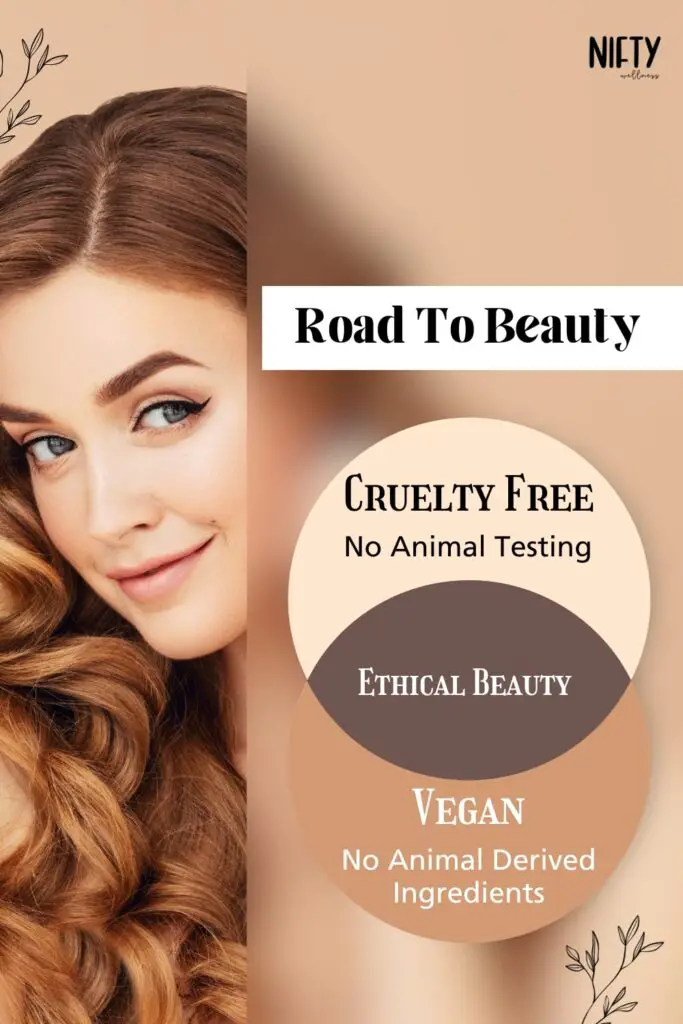
Now, before we delve into Kiehl’s policies, let’s clarify what we mean by “cruelty-free” and “vegan” in the context of skincare products.
Cruelty-Free
Any product not tested on animals at any stage of its production can be termed cruelty-free. This means no animal testing on ingredients or finished products. Choosing cruelty-free products is a way to ensure that your beauty routine aligns with ethical standards.
Vegan
The ingredients of vegan products are not animal-derived. They are all plant-based or based on other resources that are not related to animals. It’s not just about testing; it’s about the product’s composition. Vegan beauty products are often preferred by those who seek to avoid animal testing and using animal by-products.
These definitions are essential because they provide a basis for evaluating whether a brand like Kiehl’s lives up to its ethical claims.
Kiehl’s Cruelty Free Certification & Parent Company
Cruelty-free certification from recognized organizations is a crucial marker for ethical brands. Unfortunately, Kiehl’s does not possess such certification, which raises concerns about its commitment to cruelty-free practices.
The issue extends to Kiehl’s parent company, L’Oréal, which also engages in animal testing. This connection with a non-cruelty-free parent company adds to the ethical dilemma surrounding Kiehl’s products.
The Controversy: Does Kiehl’s Test on Animals?
One of the most pressing questions surrounding Kiehl’s is whether it engages in animal testing. It’s a question that often leaves consumers puzzled due to varying definitions and standards of cruelty-free. Let’s clarify this matter.
According to the brand’s official statement, Kiehl’s takes a firm stance against testing its products or ingredients on animals, and they don’t commission others to do so either. They’re passionate about putting an end to animal testing globally and actively work on finding alternative testing methods.
However, here’s the twist: Since they’re a global company, they must follow the laws of the countries where they do business. In some places like mainland China, where animal testing is mandatory by law, they might have to participate. This part of their cruelty-free claim often gets some folks scratching their heads, especially animal rights advocates and those who value ethical products.

China’s cosmetics market presents unique challenges for brands aspiring to be cruelty-free. The Chinese authorities require animal testing for certain products sold in the country, making it difficult for brands to maintain their cruelty-free status while operating there. Kiehl’s is no exception.
Kiehl’s sells products in mainland China, where animal testing is still legally mandated for cosmetics. The existence of Kiehl’s China highlights the fact that Kiehl’s allows animal testing when mandated by law. Selling products in China directly contradicts Kiehl’s cruelty-free claim.
Read our latest blog Is Cetaphil Cruelty Free? A Comprehensive Guide and explore the world of Cetaphil, a brand committed to being cruelty-free.
Is Kiehl’s Truly Cruelty-Free and Vegan?
Now, let’s address the important questions: Is Kiehl’s cruelty-free? Is Kiehl’s vegan?
Based on our evidence, Kiehl’s cannot be considered cruelty-free. It conducts animal testing on its products through third parties, and this practice is compounded by the fact that Kiehl’s is owned by L’Oréal, a parent corporation known for its involvement in animal testing.
The brand’s affiliation with L’Oréal, its practice of allowing animal testing when required by law, and its presence in the Chinese market, where such testing is mandatory, all contribute to this conclusion.
As for being vegan, Kiehl’s does offer some products labeled as “vegan,” indicating they do not contain animal-derived ingredients. However, since they are not considered cruelty-free, it’s important to note that some of their products may still be tested on animals when required by law. Doesn’t this raise doubts about the authenticity of their vegan claims?
Kiehl’s Commitment to Clean and Ethical Products
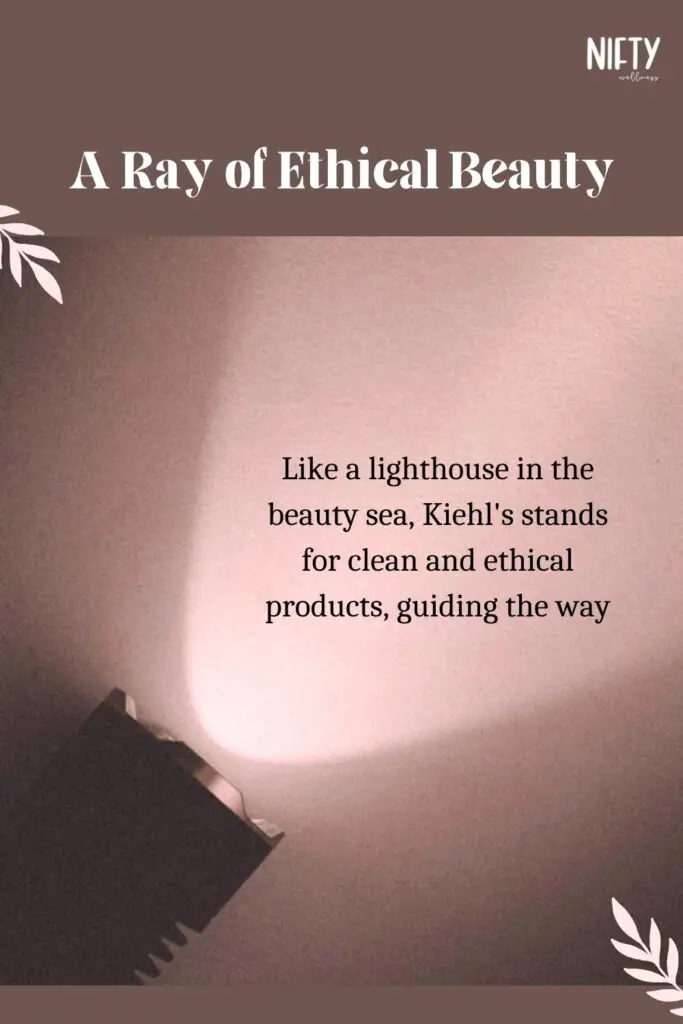
Now that we know all about Kiehl’s cruelty free and vegan status, there’s one thing that we still need to know, “Are Kiehl’s products clean?”
While Kiehl’s may fall short regarding cruelty-free and vegan standards, the brand’s efforts in producing clean and ethical products are worth mentioning. Kiehl’s emphasizes using quality, natural ingredients and their commitment to sustainability and eco-friendly initiatives. These aspects might resonate with consumers who prioritize clean beauty practices.
Cruelty-Free Alternatives to Kiehl’s
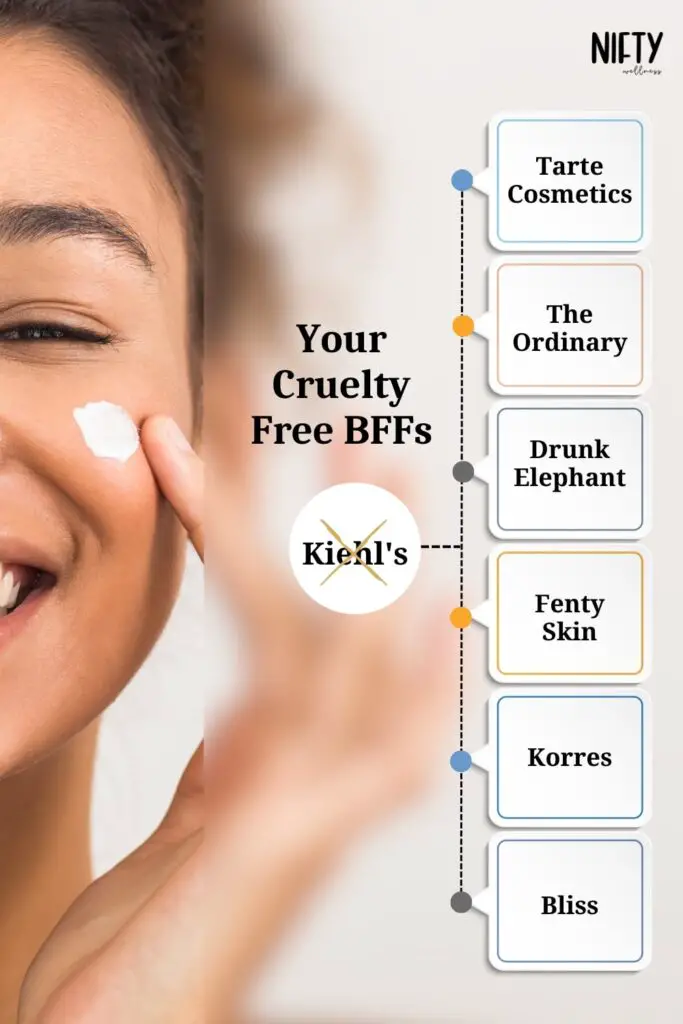
Looking for cruelty-free alternatives to Kiehl’s? Cruelty-free brands make your skin glow without weighing down your conscience! Here is a list of brands that offer cruelty-free skincare products.
The Ordinary
They’re known for their budget-friendly skincare options that do wonders without harming animals.
Pacifica Beauty
They’re all about creating makeup and skincare products that are cruelty-free and packed with natural goodness.
Drunk Elephant
This brand focuses on clean, high-quality ingredients while ensuring they don’t test on animals.
Tarte Cosmetics
Tarte offers makeup and skincare that’s eco-friendly and animal-friendly too.
Fenty Skin
Rihanna’s skincare line covers various skin needs while keeping it cruelty-free.
Youth to the People
They’re big on sustainability and create vegan, cruelty-free skincare products.
Paula’s Choice
They use science to back up their skincare while committing to cruelty-free practices.
Korres
These guys bring Greek traditions and natural ingredients into their skincare and are kind to animals, too.
Bliss
Bliss offers cruelty-free skincare, including some top-notch spa treatments and cleansers.
The Final Say
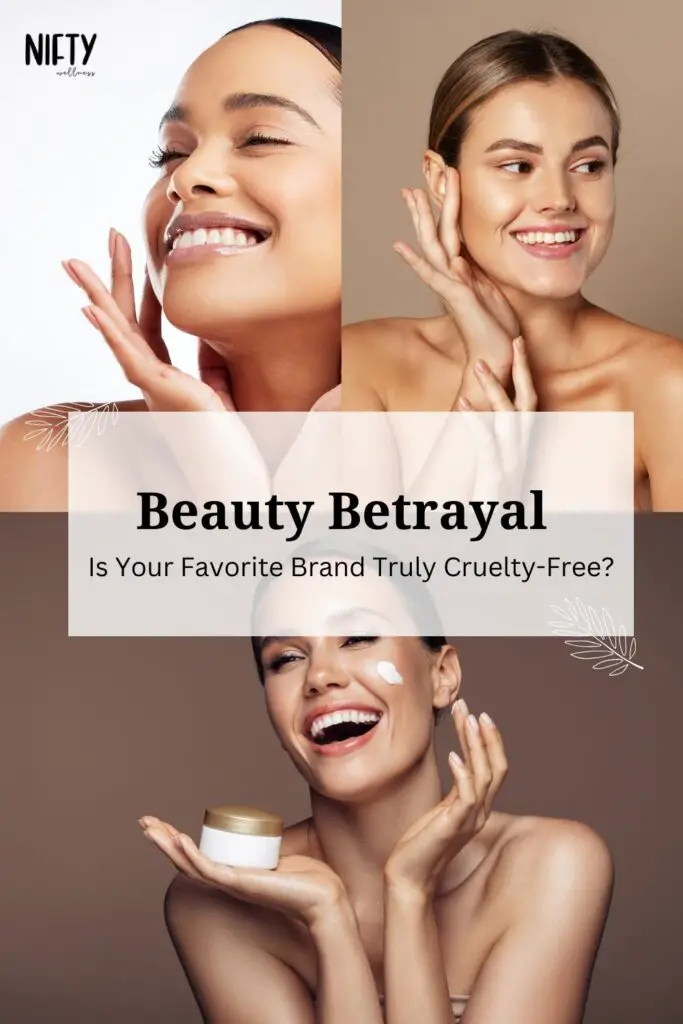
In conclusion, the question of whether Kiehl’s is cruelty-free and vegan is met with some disappointment. While the brand offers quality skincare products and emphasizes clean ingredients, its association with animal testing through its parent company and its presence in the Chinese market where such testing is required casts a shadow over its ethical claims.
This revelation might come as a surprise to those who associate Kiehl’s with natural and ethical skincare. It’s a stark reminder that the beauty industry can be complex and multi-layered when it comes to ethical practices.
As consumers, it’s essential to be informed and make conscious choices that align with our values when it comes to beauty products. Ultimately, the path to ethical skincare involves careful research and a commitment to supporting brands that share our cruelty-free and vegan beauty values.
Frequently Asked Questions (FAQs)
Are Kiehl’s products tested on animals during any phase of production?
Kiehl’s says they do not conduct animal testing during any production phase. However, it follows the countries’ laws since they’re a global brand. In places like mainland China, where animal testing is needed for some cosmetics, they might have to do it to follow local rules. This contradiction makes people who care about animals worried about whether Kiehl’s is genuinely cruelty-free.
Does Kiehl’s sell its products in countries that require animal testing?
Yes, Kiehl’s sells its products in places like China, where animal testing is mandatory by law. But they only do it when they have to follow the rules in those countries. As per their claims, they’re trying to find better ways of testing that don’t involve animals. Their goal is to find alternatives so that they can eventually stop all animal testing everywhere while still reaching people worldwide.
How can I identify Kiehl’s cruelty free products?
Identifying cruelty-free Kiehl’s products can be tricky because Kiehl’s, as a brand, isn’t entirely cruelty-free. They may sell in places where animal testing is required. To find products not tested on animals, look for specific cruelty-free certifications like PETA or the leaping bunny logo or check Kiehl’s website for their cruelty-free list. Always double-check to make sure you’re choosing animal-friendly options.
What alternatives to animal testing does Kiehl’s support?
Kiehl’s, through its parent company, L’Oréal, supports various alternatives to animal testing. L’Oréal has a long history of promoting non-animal testing methods. They’ve developed rigorous safety evaluations using in vitro tests and reconstructed human skin models in their laboratories since 1979. These alternatives align with Kiehl’s commitment to ethical practices in product development and safety assessments without relying on animal testing.
Is Kiehl’s stance on animal testing aligned with its parent company L’Oréal?
Kiehl’s asserts its stance against animal testing and pursuit of alternative methods, mirroring its parent company, L’Oréal. However, L’Oréal’s track record includes animal testing. Kiehl’s markets products in China, in line with its parent company’s approach. This connection suggests potential misalignment with cruelty-free principles, raising doubts about Kiehl’s commitment to such practices.
